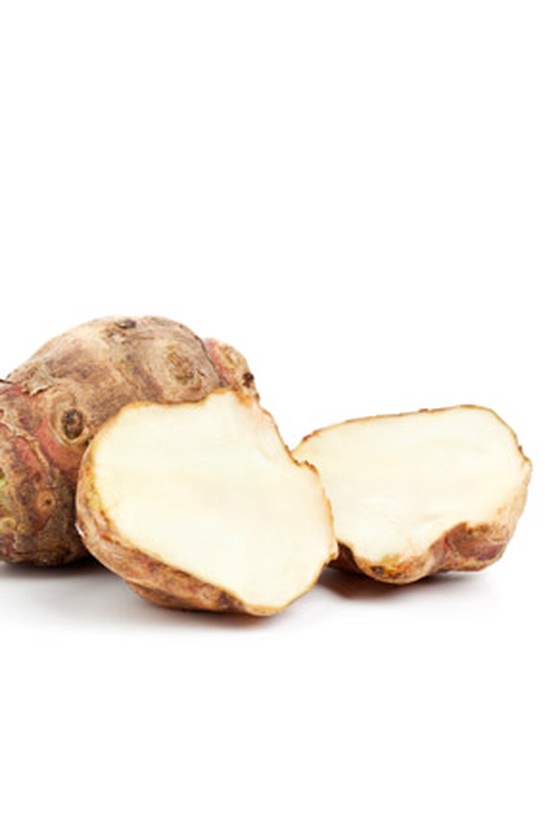6 New Superfoods You Definitely Haven't Tried Before
A half-dozen ingredients that will change the way you eat.
By Lynn Andriani
Jerusalem Artichokes
Alternately known as sunchokes, these vegetables look nothing like the artichokes we're used to; they are actually tubers, which puts them in the same family as potatoes. They have double the fiber of spuds, though, and a whopping 400 times more thiamine (vitamin B1), which is important for muscle function, the functioning of the central nervous system, the metabolism of carbohydrates, and digestion. (These numbers and other nutritional information come from the USDA's National Agricultural Library.)
Also, The American Journal of Clinical Nutrition reported last year that eating foods high in thiamine can help decrease the occurrence of PMS. You can cook Jerusalem artichokes the same way you'd make potatoes: roasted, sautéed, baked or boiled. Tricia Williams, a nutritionist with certificates in holistic nutrition and food therapy, and founder of the food and nutritional counseling service Food Matters NYC, roasts them at 400 degrees with safflower oil and thyme, and eats them as a side dish. Or try dipping the cooked "chips" in guacamole or hummus. Look for them in the produce area; they're in season during winter.
Also, The American Journal of Clinical Nutrition reported last year that eating foods high in thiamine can help decrease the occurrence of PMS. You can cook Jerusalem artichokes the same way you'd make potatoes: roasted, sautéed, baked or boiled. Tricia Williams, a nutritionist with certificates in holistic nutrition and food therapy, and founder of the food and nutritional counseling service Food Matters NYC, roasts them at 400 degrees with safflower oil and thyme, and eats them as a side dish. Or try dipping the cooked "chips" in guacamole or hummus. Look for them in the produce area; they're in season during winter.
Published 02/14/2012


